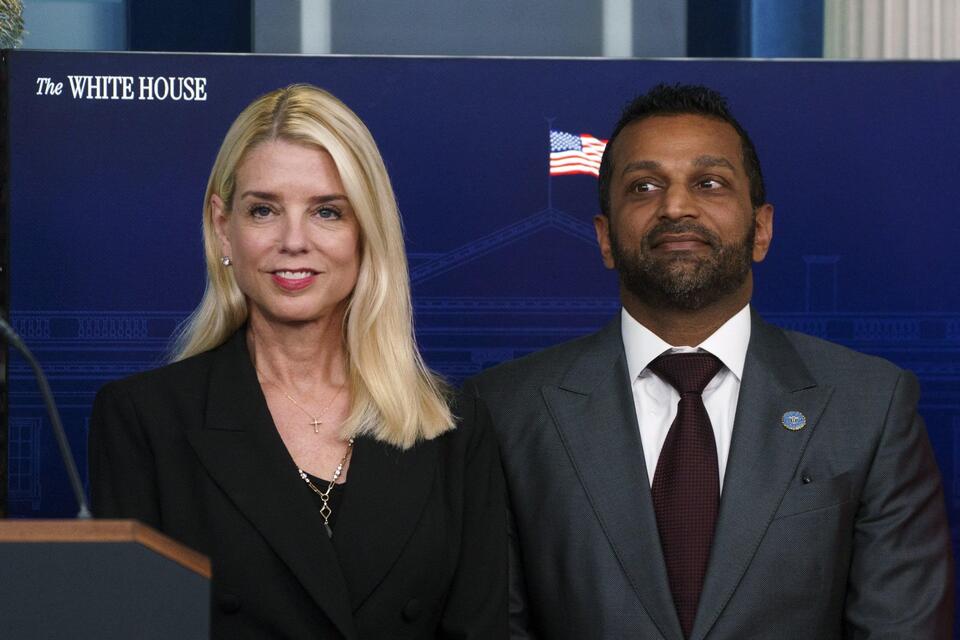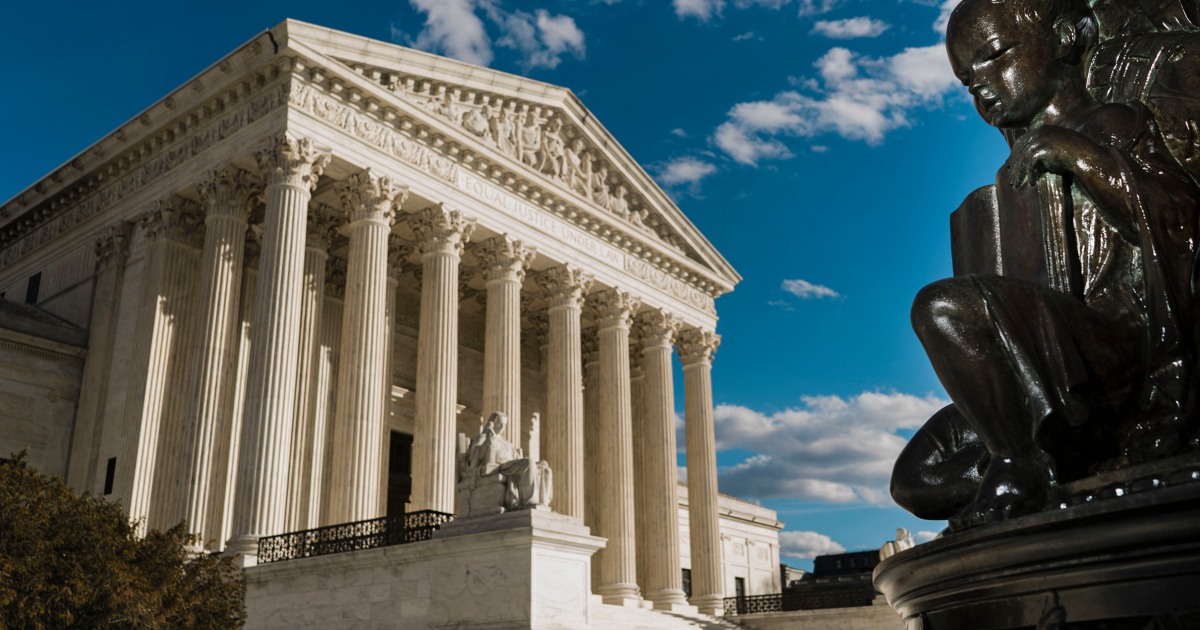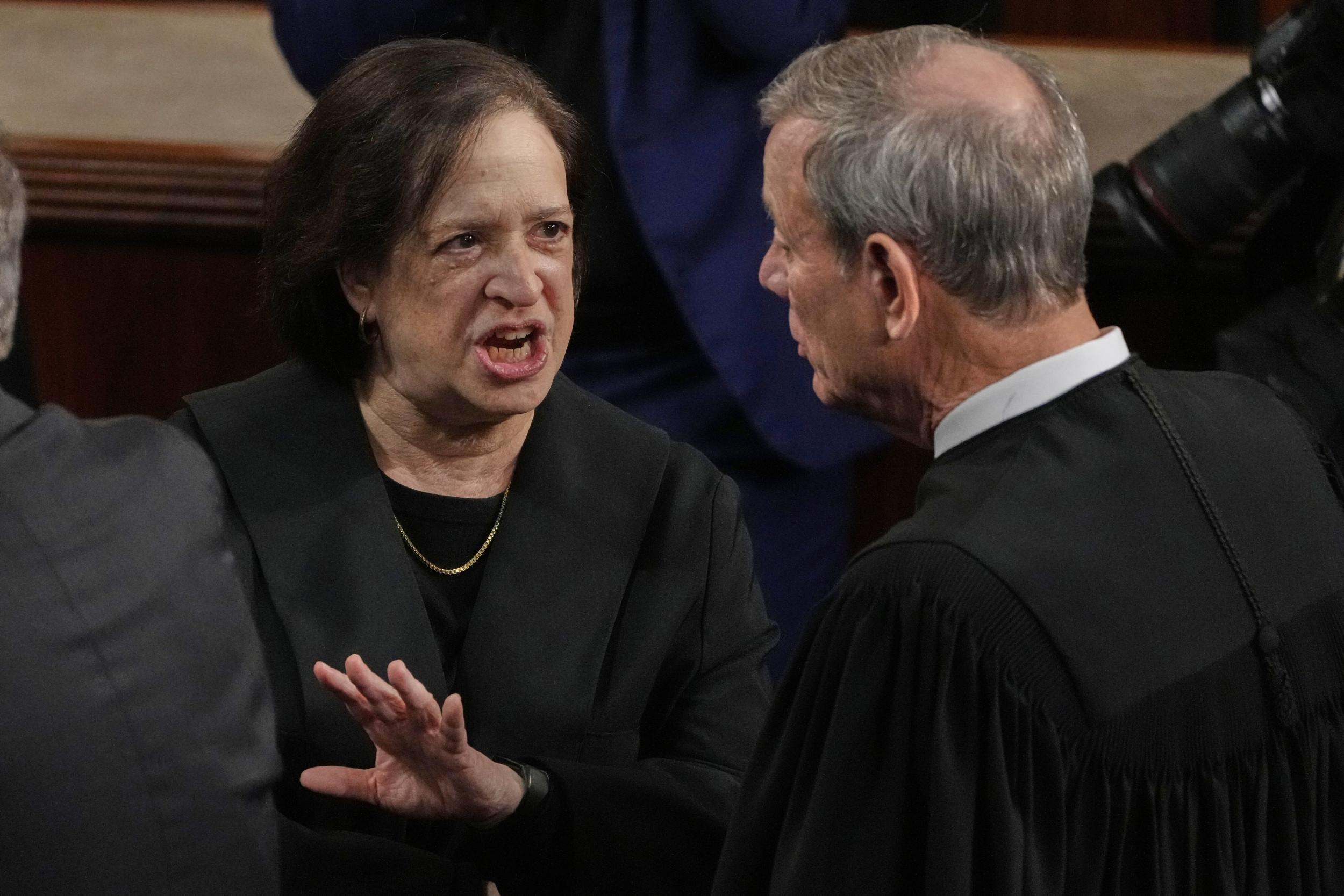Pete Hegseth! Remember that guy? Former Fox News weirdo? Famous for drinking on the job? Accused of sexual assault before paying a settlement to make that lawsuit go away? Tapped to head the Department of Defense and then accidentally texted his war plans to the editor-in-chief of the Atlantic? Oh yes, I think you’re quite familiar with Hegseth. He’s a real asshole! And an embarrassing one, too!
Well, guess what? The leaders of our armed forces also got to know this brave, pickled s—t for brains. In case you’ve stopped reading the news because it makes you want to seek out the sturdiest rafter in your basement, President Donald Trump and Hegseth summoned the top brass of the American military to Quantico, Virginia, on Tuesday for an all-hands meeting. This would be a super cool idea in, say, a “Mission: Impossible” movie. In real life, it’s a conference call that could have been an email. S—t, Hegseth is already a veteran of blasting out group messages for doing war. But using secure channels to issue directives means that Hegseth wouldn’t get to be seen issuing them. And in Donald Trump’s government, being seen is all that matters. So let’s see Hegseth rallying the troops on Tuesday and feel inspired!
Yes, the man in charge of our newly rechristened Department of War really took the stage in front of a bunch of seasoned, professional, high-ranking officers and proceeded to go epic bacon mode. Here’s the showstopper line from that clip:
“Should our enemies choose foolishly to challenge us, they will be crushed by the violence, precision and ferocity of the War Department. In other words, to our enemies, FAFO. If necessary, our troops can translate that for you.”
(sigh) It stands for “F—k around and find out.” What a powerful message to send. Because until Trump took office, we all know that other countries were like, “You know, the Americans seem pretty chill. I bet they’d never violently overreact to any perceived slight!”
I wish that this were the only cringe-worthy thing that Hegseth said to the crowd on Tuesday. But this is 2025, where wishes are zip-tied and forcefully deported to El Salvador. So Hegseth took the opportunity to deliver a full speech of cringe to our troops; a sort of “F—k you for your service” message that surely left all of the men and women in that room confident that their new boss totally knows what he’s doing. With that in mind, I collected a few more choice passages from Hegseth’s address for your perusal so that you and I can say “F—k you” right back to him. Let’s hear more!
“You see, this urgent moment of course requires more troops, more munitions, more drones, more Patriots, more submarines, more B-21 bombers. It requires more innovation, more AI in everything and ahead of the curve, more cyber effects, more counter UAS, more space, more speed.”
Just last month, Congress passed a funding bill for Hegseth’s department that clocked in at nearly $900 billion, a record high. I think that number allows for all the munitions, drones and robot sharks our military could possibly need. Then again, shouldn’t there be more AI in there, so that a drone pilot can take a pee-pee break while WarGPT detects and neutralizes a threat coming from Afgharistad?
“Our warfighters are entitled to be led by the best and most capable leaders.”
Does that mean you’re resigning? Because that would probably do the trick.
“That is who we need you all to be. Even then, in combat, even if you do everything right, you may still lose people because the enemy always gets a vote.”
Just in case you were thrown by the vagueness here, “the enemy” in question is a gay voter.
“The military has been forced by foolish and reckless politicians to focus on the wrong things. … You might say we’re ending the war on warriors. I heard someone wrote a book about that.”
He did. Pete Hegseth wrote that book. Stick around after having your job threatened and he’ll sign YOUR copy! And you should stick around, because for far too long, this country has been far too hostile to its “warfighters.” Why just this past weekend, I watched NFL league officials burn a flag before kickoff between the Packers and Cowboys, and then kick every member of the color guard square in the crotch! Disgusting!
“For too long, we’ve promoted too many uniformed leaders for the wrong reasons, based on their race, based on gender quotas, based on historic so-called firsts.”
I can’t believe we promoted BLACKS to higher ranks. Did Jackie Robinson really die for this?
“We became the woke department.”
So true. Remember when they painted the Pentagon rainbow colors for Pride month?
“This administration has done a great deal from day one to remove the social justice, politically correct, and toxic ideological garbage that had infected our department, to rip out the politics.”
How’d you do it, Pete?
“No more identity months, DEI offices, dudes in dresses.”
Oh thank God. No more trans in uniform! That’s diluting our killforce with politics! You can’t hunt down Osama bin Laden using a gender-neutral latrine!
“No more climate change worship.”
Finally, I can stop worshipping the false idol that is the only inhabitable planet in the known universe. Earth: What it is good for?
“No more division, distraction or gender delusions. No more debris. As I’ve said before and will say again, we are done with that s—t.”
OMG HE SWORE! This guy isn’t some namby-pamby sissy boy! He’s like Axl Rose!
“The new War Department golden rule is this: do unto your unit as you would have done unto your own child’s unit. Would you want him serving with fat or unfit or under trained troops or alongside people who can’t meet basic standards, or in a unit where standards were lowered so certain types of troops could make it in, in a unit where leaders were promoted for reasons other than merit, performance and warfighting? The answer is not just no, it’s hell no.”
When I was in middle school, I had a T-shirt that said HELL NO TO FAT CHICKS. So I’m glad to see Secretary Pete is fully aligned with my values. And he’s not done taking it to our fattest service members! Give ’em hell, sir!
“It all starts with physical fitness and appearance. If the secretary of war can do regular hard PT, so can every member of our joint force. Frankly, it’s tiring to look out at combat formations, or really any formation, and see fat troops. Likewise, it’s completely unacceptable to see fat generals and admirals in the halls of the Pentagon and leading commands around the country and the world. It’s a bad look. It is bad, and it’s not who we are.”
This part makes perfect sense when you remember that President Lard wants everyone working for him to be hot enough to appear on television. If you’re a general in our army, and you’re not on an aggressive HGH regimen, or you’re unable to rock a pair of stiletto heels that makes Rupert Murdoch harder than an AP exam, you’re OUT.
“Also today, at my direction, every warrior across our joint force is required to do PT every duty day. It should be common sense, and most units do that already, but we’re codifying it. And we’re not talking, like, hot yoga and stretching.”
We’re not talking about QUEER physical training. And if you ask for avocado toast at the mess hall, that’s five months in the brig.
“This also means grooming standards. No more beards, long hair, superficial individual expression. We’re going to cut our hair, shave our beards, and adhere to standards.”
Has this idiot met the vice president? Because JD Vance has a beard for FM radio.
“Because it’s like the broken windows theory in policing. It’s like you let the small stuff go, the big stuff eventually goes, so you have to address the small stuff.”
The broken windows theory was discredited many years ago and served largely as a template for then-NYC Mayor Rudy Giuliani to send turnstile jumpers directly to the electric chair.
“This is on duty, in the field and in the rear. If you want a beard, you can join Special Forces. If not, then shave. No more beardos. … The era of rampant and ridiculous shaving profiles is done.”
Damn, he hit JD with the “beardo” tag. No coming back from that. Anyway, I appreciate the War Department instituting a no facial hair policy right after the New York Yankees abandoned theirs (the Yankees stranded three runners in the bottom of the ninth Tuesday night and lost 3-1 to the hated Boston Red Sox).
“The definition of toxic has been turned upside down, and we’re correcting that. … We’re talking about words like bullying and hazing and toxic.”
The war on hazing is over! And just to make certain that bullies and hazers can flourish in the new Department of War, Hegseth and his boss are making it easier for enlistees to squeal on their commanding officers if those officers go toxic (woke)! Just like in the good old days! In fact, Hegseth now has a process for determining if you’re sufficiently old-school, and it’s rooted in hard science!
“Here are two basic frameworks I urge you to pursue in this process … the 1990 test and the E-6 test. The 1990 test is simple. What were the military standards in 1990? And if they have changed, tell me why.”
Because it’s 35 years later? Because American morale in 1990 was so low that Kurt Cobain was able to turn that ennui into culture-altering music?
“Was it a necessary change based on the evolving landscape of combat, or was the change due to a softening, weakening or gender-based pursuit of other priorities? 1990 seems to be as good a place to start as any.”
Here’s a random year that Pete drew out of a hat. BE MORE LIKE THIS YEAR. LISTEN TO MORE TRIXTER.
“Of course, being a racist has been illegal in our formation since 1948. The same goes for sexual harassment. Both are wrong and illegal. Those kinds of infractions will be ruthlessly enforced.”
BUT …?!
“But telling someone to shave or get a haircut or to get in shape or to fix their uniform or to show up on time, to work hard, that’s exactly the kind of discrimination we want.”
We will NOT tolerate discrimination in our ranks. Unless you’re fat, or weak, or gay, or trans, or a woman reporting sexual assault, or you have that sort of dirtbag goatee that every liquor store clerk has.
“We know mistakes will be made. It’s the nature of leadership.”
Like when you texted war plans to the Atlantic, yeah?
“But you should not pay for earnest mistakes for your entire career. And that’s why today, at my direction, we’re making changes to the retention of adverse information on personnel records that will allow leaders with forgivable earnest or minor infractions to not be encumbered by those infractions in perpetuity.”
All of you are entitled to violate a maximum three of your subordinates with a broomstick. If you need these violations to wage war properly, so be it.
“An entire generation of generals and admirals were told that they must parrot the insane fallacy that ‘our diversity is our strength.’ … They were told females and males are the same thing, or that males who think they’re females is totally normal. They were told that we need a green fleet and electric tanks. They were told to kick out Americans who refused an emergency vaccine.”
I will NOT stand here and let the department of woke discriminate against any soldier willing to infect his entire platoon with smallpox!
“We also don’t fight with stupid rules of engagement. We untie the hands of our warfighters to intimidate, demoralize, hunt and kill the enemies of our country. No more politically correct and overbearing rules of engagement, just common sense, maximum lethality and authority for warfighters.”
This was always the goal of conservatives decrying political correctness and wokeness. They didn’t just want license to treat nonwhite, non-hetero, non-males like garbage. They wanted license to abuse and to kill them should those people ever dare to pilot a boat. This ambition was clear during Trump’s first administration, when he pardoned former Navy SEAL Eddie Gallagher, who used his position as a sniper to gun down innocent Iraqis at random, Amon Goeth-style. SecWar Pete would now like all of our troops to Be Like Eddie. So don’t let the wokescolds tell you that killing is “wrong.” God, those people are such tight-asses!
“Today is another liberation day, the liberation of America’s warriors, in name, in deed and in authorities. You kill people and break things for a living. You are not politically correct and don’t necessarily belong always in polite society.”
I know I feel better when the man tasked with supervising the most lethal military in world history addresses his charges like they’re the prisoners from “Con Air.” Like Trump, Hegseth delivers this speech as if he’s starring in his own biopic. You can hear him waiting for a standing ovation that never comes, and it’s pathetic. This meeting served only the secretary’s whiskey-addled daydreams, and not a single active member of our armed forces. Many of the quotes you read above will be etched in stone one day, on a monument that will be torn down by a joyous protest mob.
This has been a deeply embarrassing time to be an American, and somehow Pete Hegseth has made that embarrassment even more pronounced. I bet all of the men and women and gender-fluid people (I’m woke, deal with it) in that room on Tuesday were also embarrassed. These people enlisted out of love for their country, and to do something valuable with their lives. Now they have to take orders from a narcissistic lunatic who wants them to cut weight so they can kill and pillage more efficiently. It’s disgraceful. It’s also just so, so uncomfortable. I wanna bury myself alive when I read all of this dogs—t.
At least Hegseth, toward the end of his speech, gave those same hardworking Americans an out:
“If the words I’m speaking today are making your heart sink, then you should do the honorable thing and resign. We would thank you for your service.”
That’s actually a threat, because this administration knows only how to speak in threats. But you know what? I say you folks should call the man’s bluff. Please, all of you, resign. Quit your jobs. Don’t work another second for this corrupt department. Pete Hegseth spent all of Tuesday f—king around with our service members. Time for him to find out.









